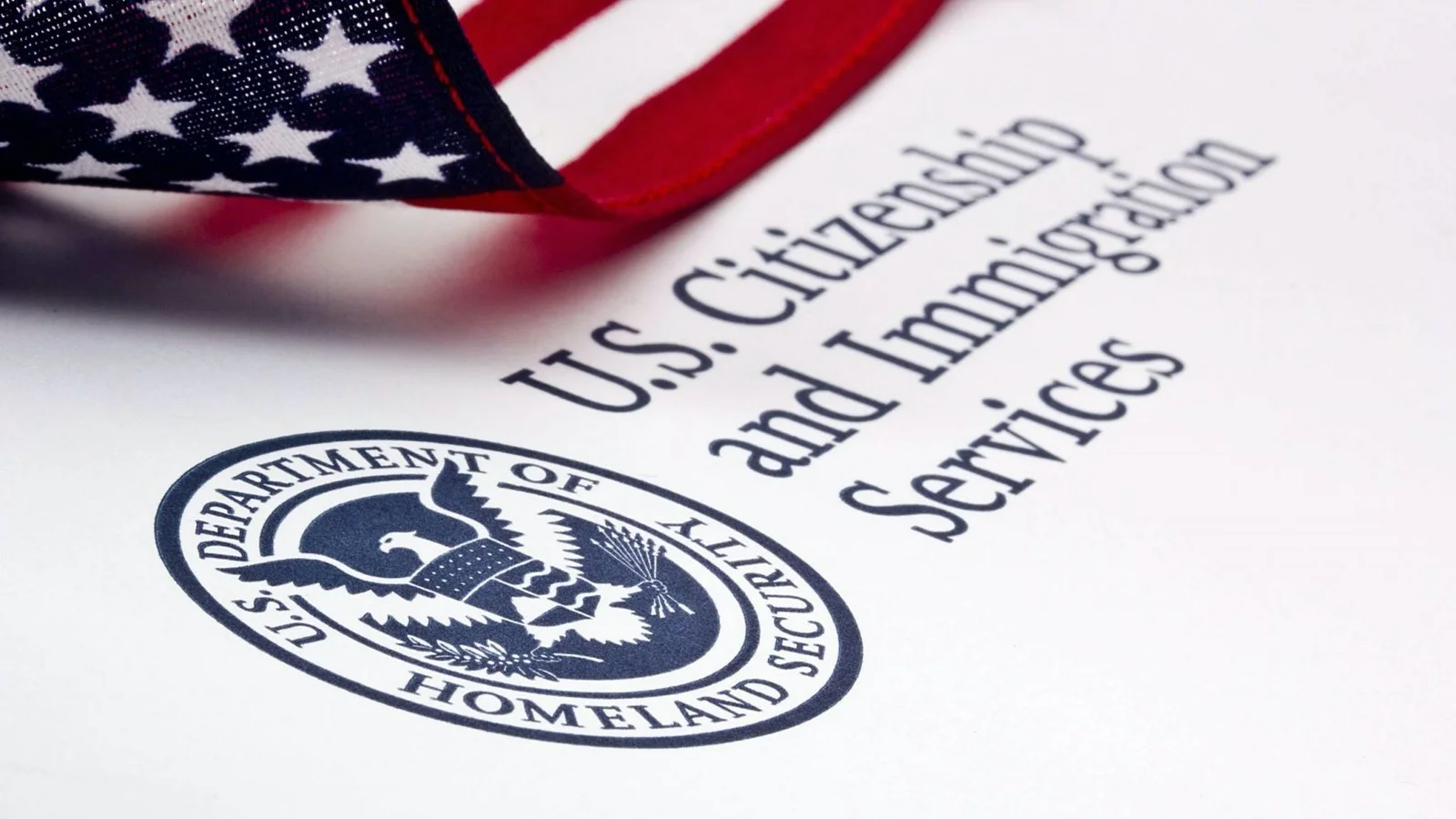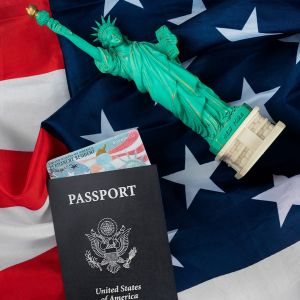USCIS Policy Manual 2025: What Every Latino Immigrant Needs to Know
In August 2025, the U.S. Citizenship and Immigration Services (USCIS) surprised the immigrant community with an update of its USCIS policy manualThe change has generated alarm and confusion among Latinos seeking to regularize their status, as several sections of the manual include new rules that could directly affect their asylum, residency and citizenship processes. This change has generated alarm and confusion among Latinos seeking to regularize their status, as several sections of the manual include new rules that could directly affect their asylum, residency and citizenship processes.
For many immigrants, these modifications are not simple administrative adjustments: they represent a radical change in the way USCIS will evaluate each application, increasing the risks of denial and, in some cases, deportation.
What changes does the new USCIS policy manual bring?
The USCIS policy manual The updated bill includes several reforms that directly impact applicants for visas, asylum and citizenship:
Stricter examinations in asylum applications
The review of asylum cases will now be more rigorous. USCIS requires more complete documentation and stronger evidence to support each application. This means that immigrants who were previously able to file a case with minimal evidence now face more severe legal barriers.
Exhaustive background check
Background checks have been strengthened, including in-depth criminal and immigration record checks. Any inconsistency or lack of information may be grounds for immediate rejection, mainly affecting immigrants who have been residing in the U.S. for years without regularizing their status.
Changes in visa and residency procedures
Family visa and permanent residency applications will have new evaluation criteria. USCIS now requires that all documents be officially translated and that the information be verifiable. This complicates the process for those without adequate legal counsel.
These changes show that the administration is focused on tighter immigration control, prioritizing security and legality over the flexibility that many immigrants had hoped for.
Naturalization Criteria according to USCIS
In addition to the general changes, the USCIS policy manual also defines the criteria for obtaining the U.S. citizenship by naturalization, which every Latino immigrant should be aware of:
Continuous residence
You must have lived in the U.S. as a legal resident for a minimum period of time (usually 5 years, or 3 if married to a U.S. citizen).
Physical presence
USCIS requires that you have been physically present in the country for at least half of that period, and have not been out of the country for more than certain consecutive days that break the continuity of your residency.
Good moral character ("Good morals")
USCIS evaluates whether the applicant has demonstrated "good moral character" during the required period. This includes lawful behavior and compliance with tax, labor, and immigration laws.
Language skills and civics
Must demonstrate ability to read, write and speak basic English, as well as knowledge of U.S. history and government.
Good Moral Criteria for Naturalization (Conditional Bars)
These are "conditional bars" that may prevent a person from demonstrating "Good Moral Character" (GMC) if he or she commits certain acts during the statutory periodThe period of time from before filing the application for naturalization until the oath of allegiance.
Types of violations that trigger conditional bars:
A. One or more offenses involving moral misconduct (CIMT)
In general, a simple domestic assault offence is not considered CIMT; however, sexual acts with minors are, whether it was known or should have been known that the victim was a minor.
In addition, with only one conviction or admission of a CIMT during the period, cannot be established GMC.
Petty offense exceptionIf the CIMT was minor -sentence of 6 months or less and the maximum penalty does not exceed one year-, could be applied the exception. However, this does not apply if there are multiple CIMTs or several minor offenses where only one is a CIMT.
B. Aggregate sentence of 5 years or more
If there are two or more convictions during the statutory period with combined sentence of 5 years or more, this prevents the GMC, except in the case of purely political offenses committed abroad.
C. Violations involving controlled substances
Any violation of federal or state controlled substance laws - including conspiracy, trafficking or financial gain from trafficking - during the period, by conviction or admission, constitutes a conditional slash.
Although some states have decriminalized marijuana, federally remains a category I controlled substance. Therefore, continues to be a conditional slash even if the status allows it.
D. Cumulative imprisonment of 180 days or more
If you have been imprisoned for 180 days or more (including conviction) during the period, is not met with the GMC. This applies even if the offense was not committed during that period, as long as the confinement occurred within that period.
E. False statement under oath
Giving false testimony under oath (orally) during the period to obtain an immigration benefit. prevents GMC, even if the fact did not affect eligibility.
Must be complied with three conditionsThe application must be oral, under oath, and with the intent to obtain an immigration benefit.
F. Prostitution
Engaging in prostitution, procuring, importing persons for prostitution or benefiting financially from it during the period prevents establish GMC. However, a single personal request is not necessarily considered procurement.
G. Human trafficking
Facilitating or assisting in the illegal entry of persons during the period of constitutes a bar, unless it was exclusively for family reunion (spouse, parent or child) before May 5, 1988.
H. Polygamy
Practicing polygamy during the period prevents the GMC.
I. Gambling
Two or more convictions for illegal gambling, or deriving income primarily from gambling during the period, prevents the GMC.
J. Habitual drunkard
Being a "habitual drinker" during the period-identified through various records such as divorce, work history, DUI, etc.-. prevents establish GMC.
K. Other events during the period
The law allows a person to be deemed to lack GMC for "other acts" even if they are not enumerated, as long as they reflect bad character, unless there are extenuating circumstances.
Evaluated case by casemust be an illegal act, during the period, reflect adversely on moral character and have no contemporaneous extenuating circumstances.
Examples includeTax evasion, forgery, fraud, sexual assault, falsification of citizenship, illegal voting, among others.
L. False Claim of Citizenship, Illegal Voter Registration or Illegal Voting
Committing acts such as falsely claiming citizenship to vote, registering knowing you are ineligible, or voting illegally during the period, may affect the GMC.
How the USCIS Policy Manual Affects Latino Immigrants
For the Latino community, which accounts for a large portion of asylum and visa applicants in the U.S., the update of the USCIS policy manual has serious implications:
Increased risk of rejection of applications: Any errors or missing documents may mean that an application will be denied without the possibility of immediate correction.
Increased fear of deportation: With stricter screening, undocumented or temporary status immigrants feel constant pressure to be detected and deported.
Need for legal advice: The complexity of the new manual makes the assistance of immigration lawyers essential to ensure that the procedures are carried out correctly and without delays.
These changes not only affect the bureaucracy, but also generate an atmosphere of anxiety and concern for entire families, who must now prepare more than ever to protect their legal status in the US.
With stricter requirements and thorough reviews, preparation, legal advice and reliable information become essential tools to navigate this new scenario.
Failure to act early can mean the difference between legal residency and deportation, or even between becoming a U.S. citizen or not. The key is to get informed, documented and supported by immigration experts.
What to do in the face of the USCIS policy manual update
Review and prepare all documentation
From birth certificates to marriage certificates and proof of residency, having all documents updated and translated correctly is key to avoiding problems with USCIS.
Seek specialized legal advice
Immigration attorneys can provide guidance on how to file applications that comply with the new rules, increasing the chances of success and avoiding mistakes that could be fatal to the case.
- Keep informed about new updates
USCIS regularly publishes changes to its policies. Being aware of these changes allows immigrants to anticipate obstacles and proactively adjust their immigration strategies.
I AM NOT AN ATTORNEY LICENSED TO PRACTICE LAW IN THE STATE OF FLORIDA, AND I MAY NOT GIVE LEGAL ADVICE OR ACCEPT FEES FOR LEGAL ADVICE.
I AM NOT AN ATTORNEY LICENSED TO PRACTICE LAW IN THE STATE OF FLORIDA AND CANNOT GIVE LEGAL ADVICE OR ACCEPT FEES FOR LEGAL ADVICE.
Our firm is associated with attorneys licensed in the state of Florida who can provide independent legal services. The notary only performs notarial acts and does not provide legal advice.








